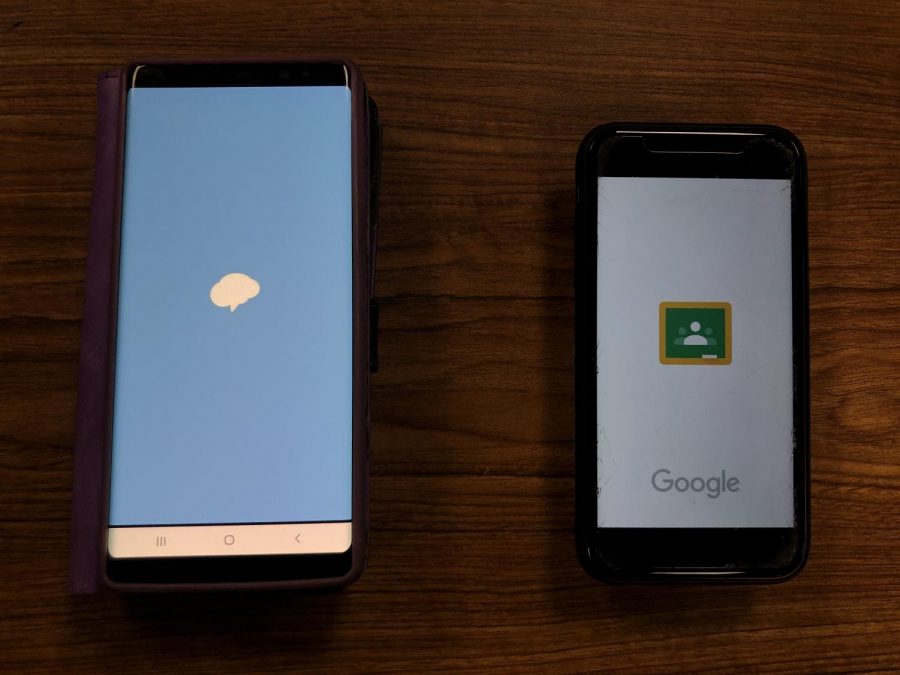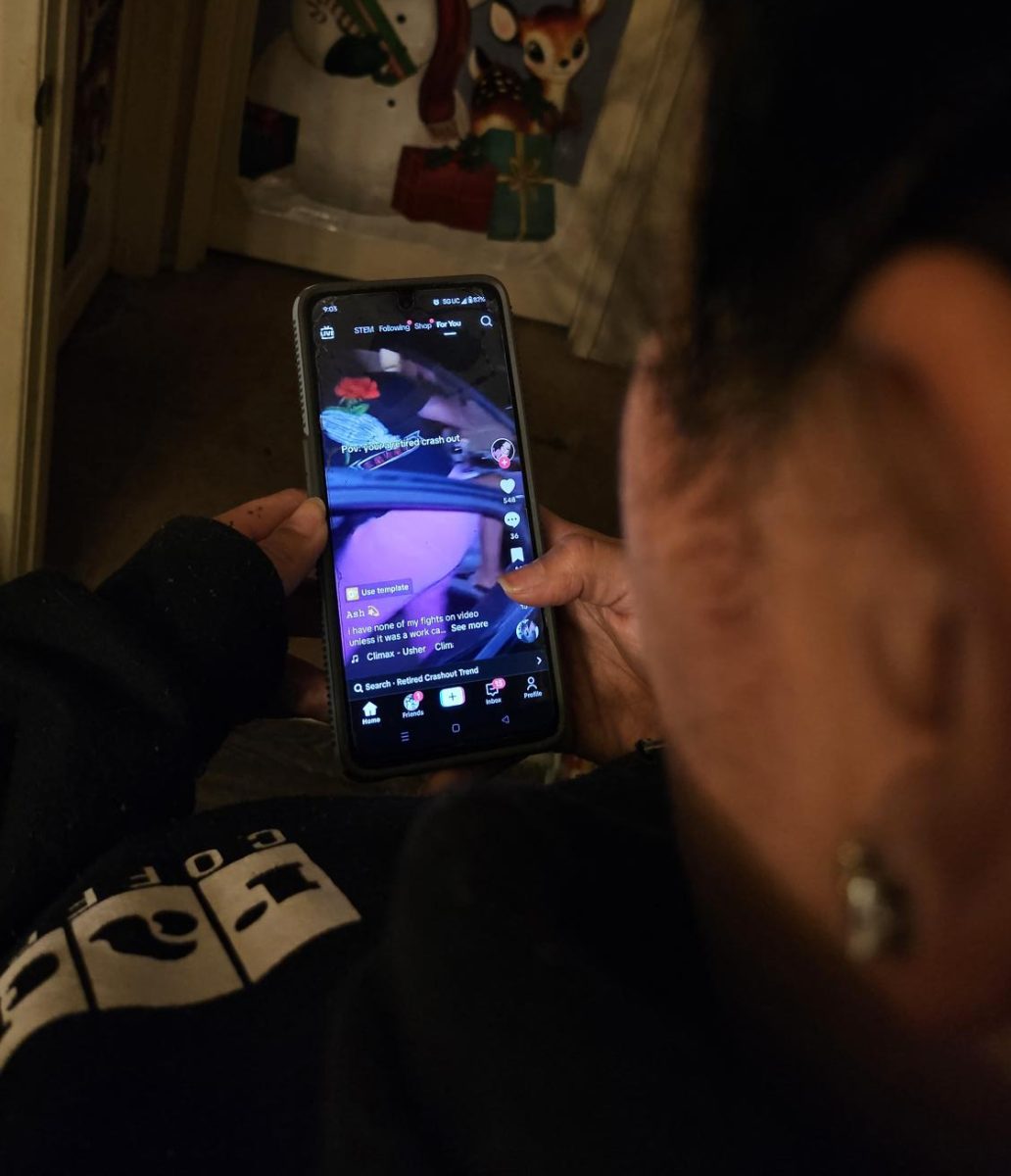Study says phones are a useful learning tool
Phones showing the apps that are used to communicate between students about homework and reminders.
December 4, 2019
As smartphones have increased in popularity, people have begun to question it’s effects, especially at schools. However, there are some undeniable benefits of having the world’s information at one’s fingertips. As technology continues to strive in our society, phones have been beneficial in different aspects of our life.
A recent study from Concordia University-Portland asserts, “Students learn in a way they are comfortable.”In other words, they believed that, “Students can get answers quickly and able to get clarification on something he or she missed.”
Hailey Garcia from the girls’ water polo team believes that phones benefit students, “They help people communicate in ways we weren’t able to before.” She states her phone is beneficial for school because, “It can help with research you need for anything, and if you need a better understanding of a concept, you can search for other ways.” She also explained that she believes that phones aren’t helpful for everything in the classroom, it depends on the activity.

Remind is one app that helps students and teachers communicate on the fly, used to remind students of assignments that are due, upcoming events, and questions for teachers.
Many teachers agree that phones are beneficial to classrooms because of the apps available to students such as Google Classroom or Remind. Mr. Woods, a Physics teacher at Don Lugo, believes that phones are beneficial to students because, “Certain activities are faster or easier to do using phones compared to using computers.” He is fond of Remind, because “It allows me to send to some or all of my students at once, usually reminders about homework.” He also believes in the usefulness of Google classroom, stating it is, “A great platform for managing classwork such as assigning work or submitting the work.” Since these apps work between students and teachers, he thinks, “Clearly the phones themselves aren’t the problem – it’s how an individual manages and reacts to his or her interaction with the phone that matters.”
Some teachers might not like how ubiquitous phones are among their students. However, when used correctly, it can benefit the students and teachers through use of apps like Google Classroom, Aeries, and Remind, to encourage closer communication between students and teachers when needed. Phones are going to continue to be a staple of daily life, so it’s better that schools keep discovering ways to utilize them to encourage learning, rather than try and pretend they don’t exist.






